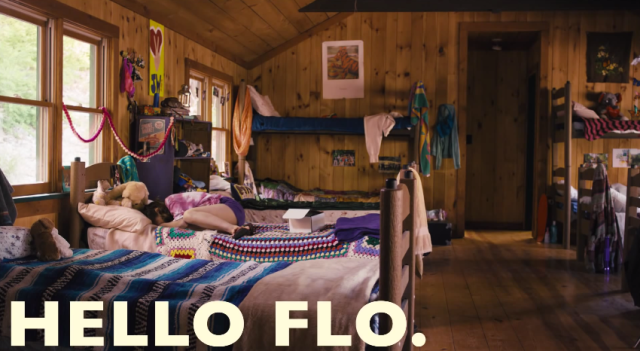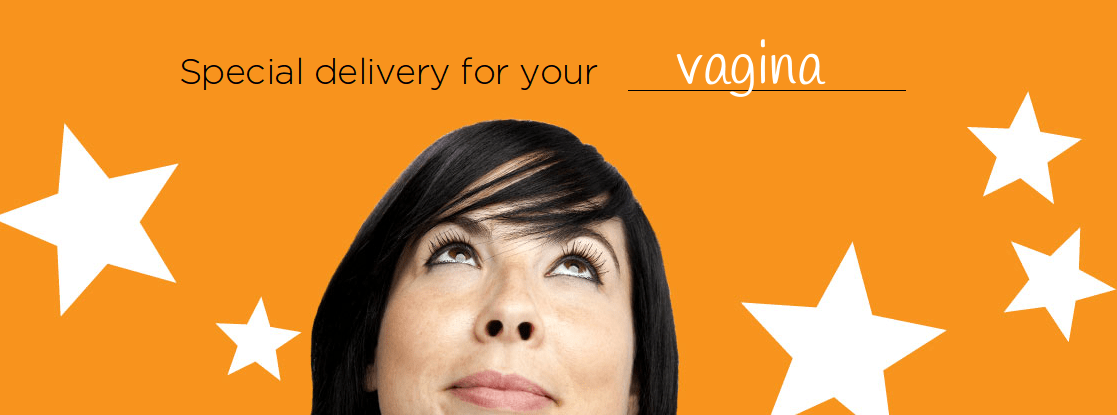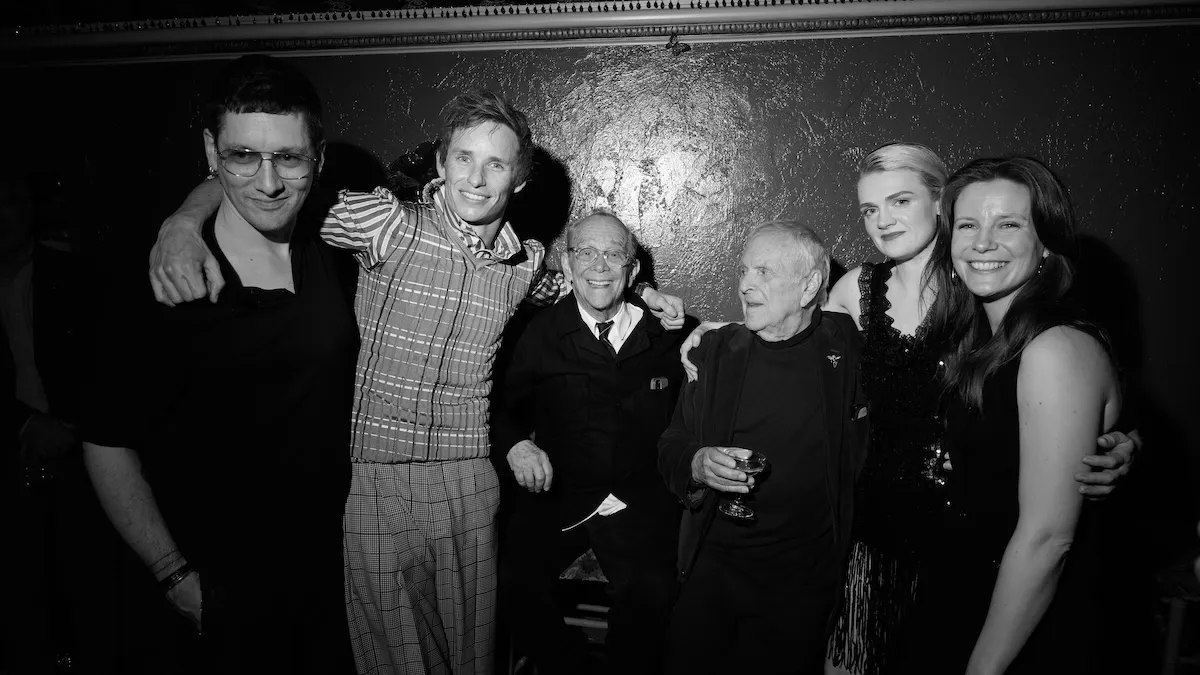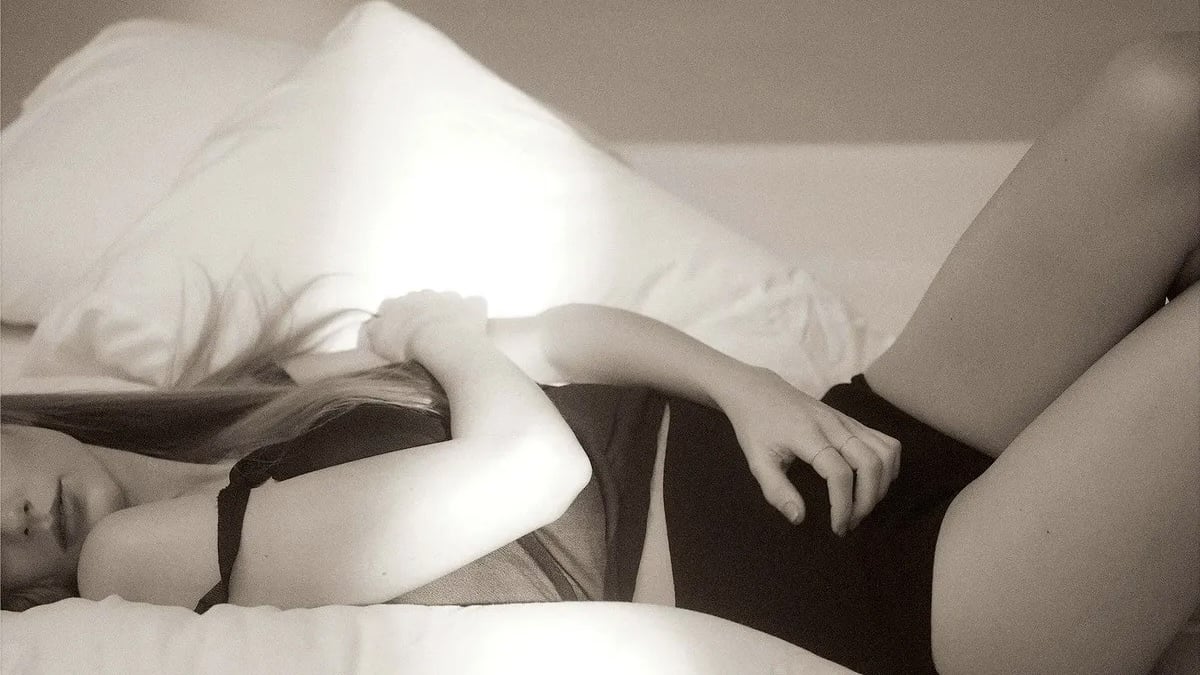The best introduction for Naama Bloom’s one-of-a-kind period subscription service HelloFlo (like Birchbox, but for your hoo-ha!) might be Camp Gyno, the company’s viral ad from 2013 featuring the world’s youngest gynecologist. A period ad with nary a drop of mysterious blue fluid? Unheard of!
In the years since Camp Gyno’s success, HelloFlo has released more frank and hilarious videos, created care packages designed to support vah-jay-jays of all different ages, and even started an “Ask Dr.Flo” resource designed to give users easy access to understandable, destigmatized information about all things vagina–but HelloFlo founder Naama Bloom is just getting started.
In the midst of this week’s impending snowpocalypse, Bloom spoke to The Mary Sue about HelloFlo’s viral videos, getting advertisers to care about women’s bodies, and how to dispel harmful and prevailing myths about the dreaded red tide.
The Mary Sue: I’m sure you’ve spoken about this a lot over the years, but it’s hard to overemphasize how different the HelloFlo commercials are from any other feminine care advertising. Would you be able to share a little bit about how Camp Gyno and First Moon Party came about?
Naama Bloom: I had come up with the idea for the business long before, but when I saw the Dollar Shave video, I thought, that makes perfect sense. I have this new kind of product, and video is a great format to tell the story, but I didn’t really know where to start. The boyfriend of a friend of mine was working for a big ad agency at the time, so I invited them over for dinner one night so I could pick his brain. My background prior to HelloFlo has always been marketing, so I put on my marketing hat and said “here are the sort of universal truths of womanhood and getting your period,” and one of the things that I felt was pretty universal is that every girl has a friend that knows more than she does. It might be a sister, it might be an aunt, but we all have someone who’s like our spirit guide through the process. Whether they really know more than you or you just think they know more than you, you end up sort of focusing on getting your information from them.
I was sharing this example, and I told him about my friend from summer camp, and how in the group of friends I was in, we had this one person that we thought knew more than us about pretty much everything, starting with periods and continuing on years later to sex. He said “oh, so she was like everyone’s camp gyno,” and as soon as he said that, both of us completely fell in love with the idea. But we never talked about “here’s what current feminine care advertising looks like,” we just decided we wanted to make a small movie about the experience. We weren’t really thinking we were trying to make an ad, it was more, “let’s do a short film.”
TMS: You said HelloFlo was based on an idea you had a long time ago?
Bloom: The original business was so different from where I am now and where I’m headed. The original idea was a subscription for your period, and I had been working on that for almost a year by the time I had this conversation about Camp Gyno. I was working on it in the background, and then the inspiration hit, basically.
TMS: Did Camp Gyno’s success lead to your partnerships with companies like Tampax or Always, or were those relationships more of an eventual thing?
Bloom: I had already started having peripheral conversations with them before Camp Gyno, but at that point I only had a website and maybe 40 customers and that was it. After Camp Gyno obviously it was much easier to get my calls returned. It was one of those situations where we had already been speaking, and I was already connected to all the right people who eventually made our partnership happen, but it was harder to be on anyone’s radar when I was just some woman sitting in her kitchen.
TMS: What has your experience been like as a woman starting her own business, particularly a business that’s going up against the traditional narrative surrounding women’s bodies?
Bloom: Soon after Camp Gyno released, I thought, “oh, I should be able to raise money for this and really sort of blow out this business,” and I was not successful at doing that. There could be any number of reasons why, whether it was that the original business concept didn’t make sense…or it could have been that even though I was a founder who showed some initial traction with very little money and bootstrapping, I was talking about women’s bodies. So, you know, I can’t identify why but definitely I had conversations with some investors who just didn’t… “Oh! Do you really think menstruation is such a big market? Do people really care about this?” To me, I thought well yeah, people do really care about this and half of the world goes through it so it’s an enormous market. However, I had just launched so, you know, it was unclear if that was the reason or not, but, you know…it’s highly likely.
TMS: It would seem just from the nature of the company you’ve created and its advertising that you have a more open attitude towards periods than most people do. How did that develop?
Bloom: My parents are not American. I’m a first generation American, and my mother grew up on a Kibbutz in Israel; it was essentially a commune, it was shared and everything was out in the open, and I do suspect that part of my openness is because I’m her daughter. She was definitely one of the mothers that when we went to buy clothing and I would be changing, she’d hold the curtains open and ask me how it looked, and I would be like “Mooooom!” I think part of it is that.
I went to sleepaway summer camp, so I think that’s sort of another aspect. I think that sleepaway camp, at least for girls and at least at the camp I went to, really…you know, there was a shower room. You all showered together, there was no avoiding what was going on with everyone’s bodies. We were aware of it and we spoke about it without stigma, and I think that those two things… I was raised not thinking that they were such a big deal. Quite honestly, when we released Camp Gyno, part of the reason I was surprised it went viral is because I didn’t think the way we were speaking was so unusual. I knew that relative to traditional advertising it was different, but I just assumed that like, “this is how girls talk, this is how women talk.” So I…I wanted to be reflective of how we talk. One of the key points about what we at HelloFlo (or really me and one other person) do, is we’re taking these private conversations that happen among women and getting rid of the shame and opening these conversations up to the public lens. So that’s been what we’re focused on.
TMS: I love that HelloFlo is removing the stigma surrounding periods while also acknowledging that periods hurt and they’re not always a pleasant experience. Was that something that was intentional when you were building the brand?
Bloom: What’s intentional is that we were going to tell it like it is and be honest about it. We’re about to launch a new video in late February about the postpartum experience, what happens to your body after childbirth. Right now we have the New Mom Kit, but we’re going to be expanding that category, and I think that it’s going to open up a conversation. Of course motherhood is beautiful and we love our babies (I have two), but after both of those births I was miserable for six to eight weeks, and part of why I was miserable was because I was utterly unprepared. It wasn’t until I couldn’t sit down because I was in so much pain that I asked my friend, and she said, “oh yeah, that’s either the hemorrhoids or the stitches,” and I thought “why has no one brought this up before, why is this a surprise?”
Everyone talks about how important breastfeeding is and how it’s really hard, and I was prepared for it to be hard, but I was not prepared for getting mastitis multiple times and having an abscess. Similarly to your period, there are amazing things about it and it marks a rite of passage and it is sort of a beautiful thing taken abstractly. But when you’re younger in particular, the cramps are more severe, and you don’t know how to manage it yet so it really isn’t all pleasant. But if you’re prepared and you can understand that “ok, it’s going to be a little crummy but you can have a sense of humor about it,” that makes it a bit better.
TMS: Did you always intend to offer products for older age groups eventually, or is that just a market that you’re moving into now?

Bloom: After Camp Gyno was released I got thousands of emails in my personal inbox from women all over the world, asking “what about new moms? What about menopause? what about this or that?” and I thought, “oh my God, I didn’t realize that people are just sort of dying to have this conversation!” But it makes sense, because I have these conversations as well. So I started exploring it, and when I launched Camp Gyno I had also launched the first of the care packages, which was the Period Starter Kit. People were really responding to the idea, and I thought, when you become a mother for the first time, everyone brings you stuff for the baby but no one’s bringing you nipple cream and what you really need, so wouldn’t it be great if instead of just giving onesies and diapers and things like that, we also can give new moms things to heal themselves.
TMS: Would you ever consider creating a box that’s gender neutral for people who don’t identify as women but still get periods?
Bloom: This is a topic I think about a lot, and in fact this weekend I had a long conversation with someone about it, about how I manage this. Right now I’m not set up to do that, but I have received emails from people in the trans community saying “I get my period, but I identify as a man and I don’t want to go to the store and buy products.” I haven’t figured out a way to create that and work it in yet, but we’re expanding our content and we’re making a number of changes over the next few months which hopefully will open up a lot more opportunities for us to experiment. It’s a balance because the site was definitely intended as a sisterhood. I don’t know if you read that article in the New York Times Magazine about the people who transition while they’re at all-women’s colleges like Wellesley and Smith. Did you read that article?
TMS: No, I havent.
Bloom: Oh, it’s highly recommended reading. It touches on this interesting question, if you’ve designed a place for women, what do you do when part of the community no longer identifies as women? Are they still part of the community, or should they not be anymore? I have to address that at some point, I just can’t wrap my head around it yet.
TMS: In your wildest dreams, what do you see as the future for HelloFlo?
Bloom: I want HelloFlo to be like the modern girl/woman’s version of Our Bodies, Ourselves. When I think about what book or piece of media impacted me the most in my late teens, early twenties, almost to my early thirties, it was that book. The book still exists, and I think every woman should own it, but I think people are interested in consuming media digitally now. I don’t think there’s a space where you can get information about your body and your health and just your life from a credible source speaking really openly and honestly, doesn’t talk down to you, isn’t too clinical…just real information. In my wildest dreams, that’s the vision I have hanging over me. Obviously it might not take the same form, and it might not be all encyclopedic, but there was an ethos to that book that I think has been lost in the world of media, and I think the world is ready for that again.
TMS: I read an interview with you from shortly after Camp Gyno came out, where you said “the way we experience menstruation in this country is not in sync with who the modern girl or woman has become.” What do you see as the disconnect between how we talk about menstruation and the women and girls you see around you?
Bloom: The conversations you have with your friends about your periods just doesn’t match the media’s discussion around it. Certainly it’s changing a bit, but if you go on Twitter there are certain hashtags, you know, #PeriodProblems and all that stuff. You see women of all ages, some of them pretty young, talking in non-discrete ways about their periods, right? I mean, some of it is like “all I want to do is eat french fries and chocolate #periodproblems,” and some of it is “I want to use a tampon but I’m afraid.” In a million years when I was twelve I would not have broadcast to the world around me “I want to use a tampon but I’m afraid.” But you know what? I got in a back and forth Twitter conversation with a girl who wrote that, and I tried to coach her how to think about it, but you know, it’s like…can you imagine when you were in eighth grade putting something like that in a forum that everyone could see? You would have been mortified.
I think that’s part of what’s changing, and I also think that because people are talking about it, women are fed up with certain things. You know, like carrying a tampon up your sleeve to the bathroom, so annoying! Just have tampons in the bathroom so we don’t have to! Or, women should be able to walk down the hall carrying a tampon and not feel like the world is going to suddenly assume that “she’s going to be PMS-y.” There is a reason we keep it quiet, and it’s because the world will react differently to us if they know that we have blood coming out of us.
TMS: Exactly! And the stigma around it isn’t just “eww, gross,” it’s that we’re now somehow more unstable or unreliable.
Bloom: I think that “eww, gross” is for real. Like, it is “eww, gross.” Sometimes I think “eww, gross.” It is disgusting sometimes. However, like, I have to deal with it all the time. I used to say, if men got their periods we would have figured out how to get rid of periods by now, but like, sometimes you go to the bathroom and you think “this is an absolute mess.” I’m not saying everyone needs to come into the bathroom with me and see it, but everyone needs to grow up a little and say “eww gross,” move on, it’s not a big deal, and even if that’s happening I’m actually still very capable of making good decisions. There’s been all these studies about how women as decision makers are more emotionally attuned, and how that can be a superior way to make a decision. Some might argue that could maybe be part of why.
I’m obviously hyper-aware of this, especially since having my own business, but I think the sort of PMS equals crazy person is such a bad…I really want to do away with that in society. I think it’s so bad for women and so bad for our ability to progress in the workforce. I think about that a lot.
Are you following The Mary Sue on Twitter, Facebook, Tumblr, Pinterest, & Google +?








